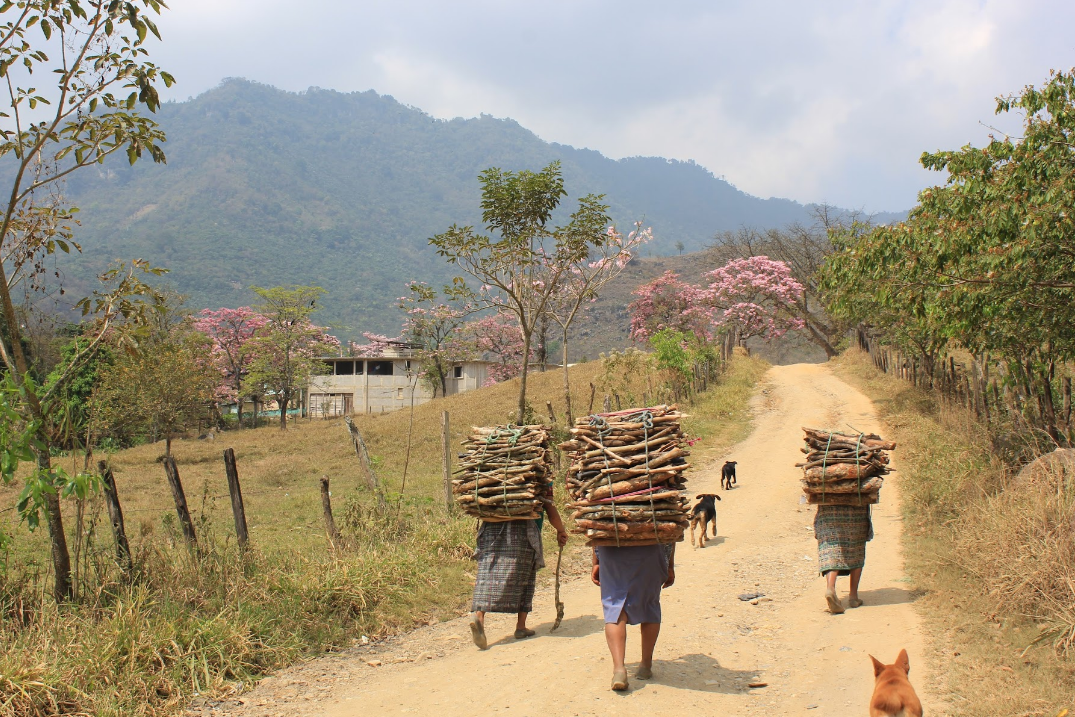
Exploring the Farm: Nueva Armenia
Share

FROM THE RECINOS FAMILY TO OURS
For the Kittel team, 2018 represents our seventh year of operation but also the second year of our direct import partnership with Finca Nueva Armenia in Guatemala. Located near La Democracia in the municipality of La Libertad, four generations of the Recinos family have worked tirelessly to create something special in the Huehuetenango region.
The farm is run today by twin brothers Jorge and Javier and their mother Noemi, but it was their nephew Juan Sebastian who first introduced us to this cafe. Sebastian, as we know him now, is now based in Montreal where he studies at O'Sullivan College. In 2016, he approached us with a coffee sample that exceeded all of our expectations! The coffee was complex, floral and with a vivacity rarely found in the Central American coffee samples we usually receive. Shortly after, not only did we start our partnership with Finca Nueva Armenia, but impressed by Sebastian's tenacity and hard work, we decided to make him one of our team members!
The farm now employs nearly 30 full-time people, as well as several seasonal workers, men and women from the village of Santo Domingo las Flores. The village was built on land given to the inhabitants by Antonio Recinos, Noemi's husband. Antonio, a trained doctor who also worked for Guatemala's Ministry of Health, personally funded the construction of the village's water and waste management system. He also co-financed the construction of the village school.

AN APPROACH FOCUSED ON SUSTAINABLE DEVELOPMENT
Jorge and Javier firmly believe that their farm should be in symbiosis with its environment. Together they studied environmental engineering at the Universidad Rural de Guatemala and when they took an active part in the management of the farm in 1996, they were quick to apply the theories they learned.
These methods began to bear fruit in 1999, by obtaining OCIA organic certification, Finca Nueva Armenia became one of the first farms to receive organic certification in Guatemala (it remains one of the few in the country to hold it). This cultivation approach means a rigorous evaluation of the practices associated with each stage of the production cycle.
While nearby farms use traditional chemical fertilizers, Nueva Armenia chooses instead to use as fertilizer the pulp of the coffee tree (coffee tree) fruit, a residue from the washing process and compost it with red worms in order to produce a viable and entirely organic alternative. Also, instead of using pesticides, the Recinos brothers once again put their education to work by choosing to plant a species of plant known locally as falsa manía (or false peanut , named for its appearance similar to a groundnut plant) at the base of the coffee trees. The two brothers knew that this plant would provide the soil with a supply of nitrogen which makes it possible to neutralize certain undesirable species.

Jorge and Javier have also set up a nursery of native trees and flowers. In addition to stimulating the insect population, the nursery also makes it possible to transplant trees and plants throughout the property. For example, these trees (mainly oak, cedar and other fruit trees) are used throughout the farm to provide shade for the coffee trees, which significantly reduces the watering and improve the health of coffee trees. In the end, this results in a premium coffee bean. These trees have also helped establish a migratory bird sanctuary, earning Finca Nueva Armenia the Smithsonian Foundation's Bird Friendly designation.

In addition, Finca Nueva Armenia uses modern wastewater management techniques to minimize pollution of surrounding waterways. These issues of coffee growing as well as the techniques used by Jorge and Javier are described in this 2012 article from the International Journal for Service Learning in Engineering (see the English version of the article on this pdf ).
QUALITY BEFORE QUANTITY
Along with their dedication to sustainability, the Recinos family has always been obsessed with quality. Throughout the year but especially during the harvest season, Jorge and Javier can be found on the farm evaluating the many farm processes.
They regularly test the pH level of the water in the farm's three fresh water sources to determine which one to use to water the coffee trees. An annual soil pH assessment is also carried out in conjunction with ANACAFE, the national coffee association in Guatemala.
After harvest, daily samples of pergamino (grains that have not yet gone through the drying process that removes the parchment that covers the grains) are taken. Each sample, taken at random, has its parchment removed by hand, and is subjected to the standard green coffee grading process. Afterwards, Jorge and Javier will roast several coffee samples during the harvest season.
The Recinos brothers devote a lot of time to experimentation, especially in their many nurseries where they carry out experiments in the cultivation of several species of coffee trees.

The result of all this hard work by Jorge, Javier, Noemi and all the other farm workers is a coffee that gets high marks in various evaluations and has allowed Finca Nueva Armenia to develop an excellent reputation with various roasters.
Over the past year, we were proud to introduce you to the bourbon rouge variety coffee, which stood out for its notes of almonds, butter cookies, red grapes and subtle floral aromas. For the next year, we are excited to work with Sebastian and the rest of the Recinos family to bring you a diverse variety of microlots.
